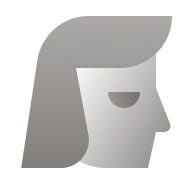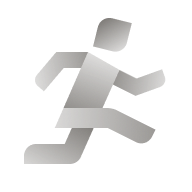Visual-Vestibular Mismatch Syndrome
Individuals with a VVM may experience some of the following functional difficulties:

At work
- Looking at computer provokes eyestrain, headaches, dizziness, and/or nausea; utilizing multiple screens or windows has become problematic
- Scanning through a stack of papers for specific information has become difficult
- Easily distracted and irritated by normal sensory stimulation (e.g. lighting, noise, movement) at office or job site
- Difficulty with multitasking, cognition, managing stress, and/or changing tasks rapidly and fluidly
- Reduced work efficiency: Unable to complete all work (or forced to work additional hours to complete it all)
- The office commute makes one ill (e.g. nausea, headache, and/or fatigue)
- Exhausted upon returning home and struggles to prepare an evening meal or enjoy family time
- Days off are prioritized for rest and recovery from the previous workday and to prepare for the next
At school
- Headaches, fatigue and/or feeling unsteady
- Sensitivity to fluorescent lighting
- Reading is slower and more effortful, with reduced stamina, comprehension, or memory
- Taking notes has become difficult and mistake ridden
- Phone scrolling or flashing screen icons is bothersome
- More time is required to complete assignments or tests
- Studying in a quiet, non-distracting environment has become mandatory
During physical activity
- Symptoms provoked with excessive or repetitive eye, head, or body movements
- Walking: may experience swaying to one side, or bumps into objects occasionally
- Struggles with uneven or sloped surfaces, or increase reliance upon using handrail of stairs
- Avoidance of excessive physical activity or exercise
During social engagement
- Difficulty listening to someone amidst multiple conversations or lots of background noise (e.g. in a busy restaurant or party)
- Reduced capacity to have lengthy in-depth conversations
- Forget names or words, and/or struggle with word or thought expression
- May stutter when overly fatigued or stressed
- Withdrawing from social interaction because of effort required, symptom provocation, loss of extroversion, or tired of explaining condition or making excuses
- Maintaining social relationships has become stressful
During daily life
- Every ounce of energy is used just to make it through the day
- Household chores are a struggle, provoke symptoms, and are being neglected
- Grocery shopping is avoided, but when necessary is done briefly and only to get a few items
- Driving (e.g. troubles changing lanes, looking at mirrors, shoulder checking, judging distances of oncoming vehicles, parking accurately) is difficult and/or symptom-provoking. Unfortunately, taking transit or a taxi may not be a much better solution
- Stress from any source (e.g. physical, emotional, cognitive, health, financial) seems to provoke symptoms. Interestingly, symptoms often reduce during a relaxing vacation or upon spending time in nature
- Avoidance of certain activities (e.g. reading, watching TV) to reduce symptom provocation
- Life has become a greater struggle and may be associated with a loss of “joie de vivre” (joy of life)
For a greater understanding of what we do from the personal experiences of our patients follow the link below:



